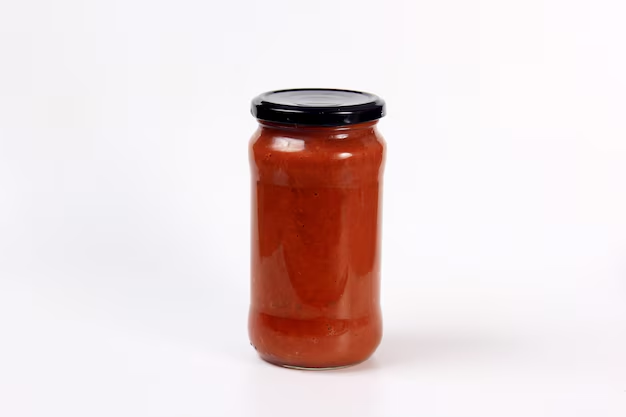Discovering the Shelf Life of Spaghetti Sauce in Your Fridge 🍝
Few culinary pleasures compare to a hearty helping of spaghetti drenched in rich, flavorful sauce. But what happens after the meal is over and the leftovers are put away in the fridge? Many of us have gazed into the abyss of our refrigerator, pondering the age of that container of spaghetti sauce. If you're unsure about how long it lasts, you're not alone. Let's journey through the lifespan, storage tips, and best practices for your pasta's perfect companion.
Understanding the Shelf Life of Spaghetti Sauce
The Basics: Freshness Timeline
Spaghetti sauce, whether homemade or store-bought, varies in its shelf life based on several factors. Generally, once opened or prepared, refrigerated spaghetti sauce lasts:
- Homemade Sauce: Roughly 3 to 5 days.
- Store-Bought Sauce (in a jar): About 7 to 10 days, depending on preservatives.
- Store-Bought Sauce (fresh, without preservatives): Closer to 4 to 6 days.
This timeline assumes the sauce is stored properly in the refrigerator. These estimates are general guidelines, and actual shelf life can vary.
Factors That Affect Shelf Life
Several elements can influence how long your spaghetti sauce remains fresh:
- Ingredients: Dairy-based sauces, like those containing cheese or cream, typically spoil faster than tomato-based ones.
- Storage Temperature: Keeping the refrigerator consistently at or below 40°F is crucial.
- Preservatives: Store-bought sauces with preservatives will generally have a longer shelf life than fresh, natural sauces.
Recognizing Spoilage Signs 🔍
To ensure your safety and reduce waste, it's vital to recognize when spaghetti sauce has passed its prime:
- Smell: A sour or unpleasant odor is a clear indicator of spoilage.
- Texture: Any mold growth, unusual clumping, or separation that can't be stirred back together is a warning sign.
- Color: Discoloration, such as darkening or greenish hues, suggests bacterial or mold growth.
Quick Tips & Storage Suggestions
Here are a few storage strategies you can adopt to maximize the longevity of your spaghetti sauce:
- Seal it Tight: Use airtight containers or resealable plastic bags to store your sauce.
- Label Your Sauce: Writing the storage date on the container helps you track its freshness.
- Store on a Shelf: Place sauces on fridge shelves where temperatures are consistent, instead of the door compartments.
Diving Deeper: Extending Sauce Shelf Life 🕰️
Freezing: The Long-Term Solution
If you want to make your sauce last beyond a week, freezing it can significantly extend its shelf life. Here’s how to do it effectively:
- Portion Control: Freeze your sauce in meal-sized portions to avoid thawing more than needed.
- Storage Options: Use freezer-safe bags or containers, ensuring you leave some space for expansion.
- Label & Date: As with refrigeration, marking the date ensures you'll know how long it’s been stored.
Defrosting & Reheating
When you’re ready to use your frozen sauce, it's important to defrost and reheat it safely:
- Thaw in the Fridge: Transfer the sauce from freezer to fridge, allowing 24 hours for every 2-3 pounds of sauce.
- Gentle Reheat: Use low heat on the stove, stirring occasionally to prevent scorching.
Homemade vs. Store-Bought: A Comparative Look
There’s a nuanced distinction between homemade and store-bought spaghetti sauce:
- Homemade: While often fresher and without preservatives, it typically has a shorter refrigerator life.
- Store-Bought: These, especially those with preservatives, may have a longer shelf life past opening. Always check expiration labels and follow storage instructions for the best results.
Staying Safe: Hygiene and Best Practices
Handling and Serving Your Spaghetti Sauce Safely
Food safety is paramount when storing spaghetti sauce:
- Clean Utensils: Avoid introducing bacteria by using clean spoons or ladles each time you serve or portion out sauce.
- Cool Down Quickly: Let hot sauce cool before storing to prevent bacteria proliferation.
- Avoid Double Dipping: Once it's in the serving bowl, treat it as a one-time use portion.
Summarizing Key Takeaways ✍️
Here's a quick-reference guide to help you manage your spaghetti sauce:
- 👨🍳 Homemade Sauce: Lasts 3-5 days in the fridge.
- 🛒 Store-Bought Sauce: Enjoys a 7-10 day lifespan once opened.
- 🤢 Spoilage Check: Watch for off smells, mold, and discoloration.
- ❄️ Freezing to Extend: Store in portion sizes, thaw slowly in the fridge.
- 👏 Maintain Hygiene: Use clean utensils, avoid double dipping.
Practical Tip: Regularly assess what’s in your fridge. If there’s any doubt about whether the sauce is safe to eat, it’s better to discard it than risk illness.
By keeping these guidelines and insights in mind, you can enjoy your spaghetti sauce over a variety of meals, minimizing waste and maximizing flavor. Now, next time you find yourself peering into the fridge, unsure about that sauce's freshness, you'll be well-equipped to make the right call. Buon appetito! 🍝

